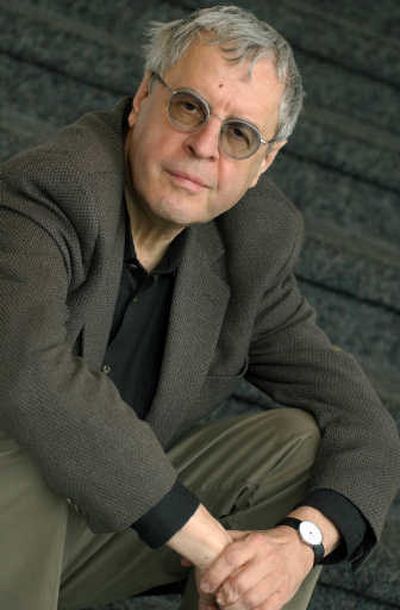Pulitzer winner named nation’s poet laureate

CONCORD, N.H. – Pulitzer Prize-winning poet Charles Simic, who learned English as a teenage immigrant, will be the new U.S. poet laureate, the Library of Congress announced Thursday.
Simic, who lives in Strafford, will replace another New Hampshire poet, Donald Hall, in the poet laureate program, which promotes poetry across the nation.
“I’m overwhelmed,” he said.
Simic taught at the University of New Hampshire for 34 years before moving to emeritus status. He won the Pulitzer Prize in poetry in 1990 for his book of prose poems, “The World Doesn’t End.” He also is an essayist, translator, editor and professor emeritus of creative writing and literature.
“When you read it, you feel like he’s talking to you,” Marilyn Hoskin, dean of the college of liberal arts at UNH, said of Simic’s work. “Whatever the subject matter – a cat walking at midnight or a view from Serbo-Croatia – someone is there telling you something beautifully phrased.”
Simic was born in Yugoslavia in 1938, and his childhood was disrupted by World War II. He moved to Paris with his mother when he was 15 and joined his father in New York a year later, in 1954. He has been a U.S. citizen for 36 years.
“I am especially touched and honored to be selected because I am an immigrant boy who didn’t speak English until I was 15,” he said.
Simic graduated from the same suburban Chicago high school as Ernest Hemingway, where he started writing poetry to attract girls, he said.
“They were always surprised. ‘You wrote this for me?’ ” Simic said. “They’re so surprised, they don’t want to play literary critic at that moment.”
Simic’s first collection, “What the Grass Says,” was published in 1967. It was noted for its surrealist poems.
Simic’s awards include the Edgar Allan Poe Award, the PEN Translation Prize and awards from the American Academy of Arts and Letters and the National Institute of Arts and Letters. He was elected a chancellor of the Academy of American Poets in 2000 and received fellowships from the Guggenheim Foundation and the National Endowment for the Arts.